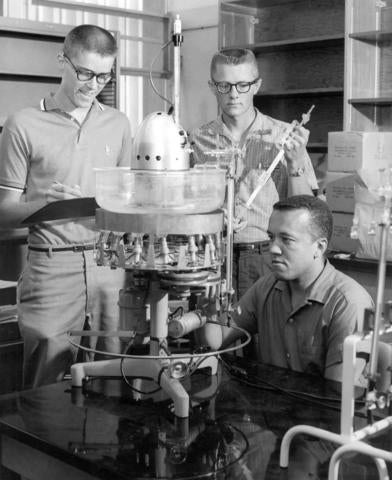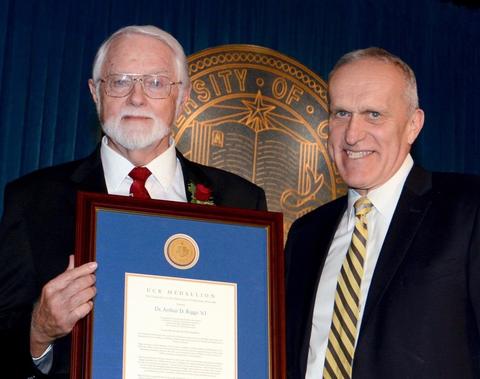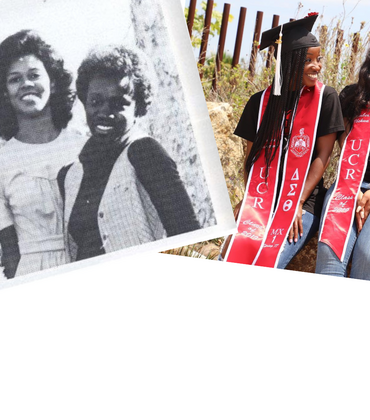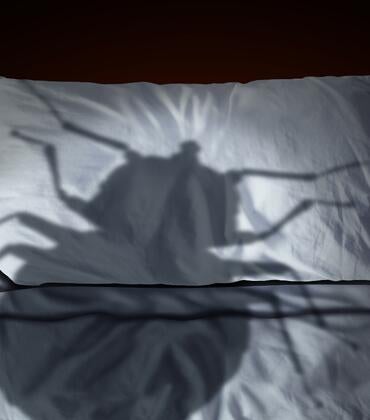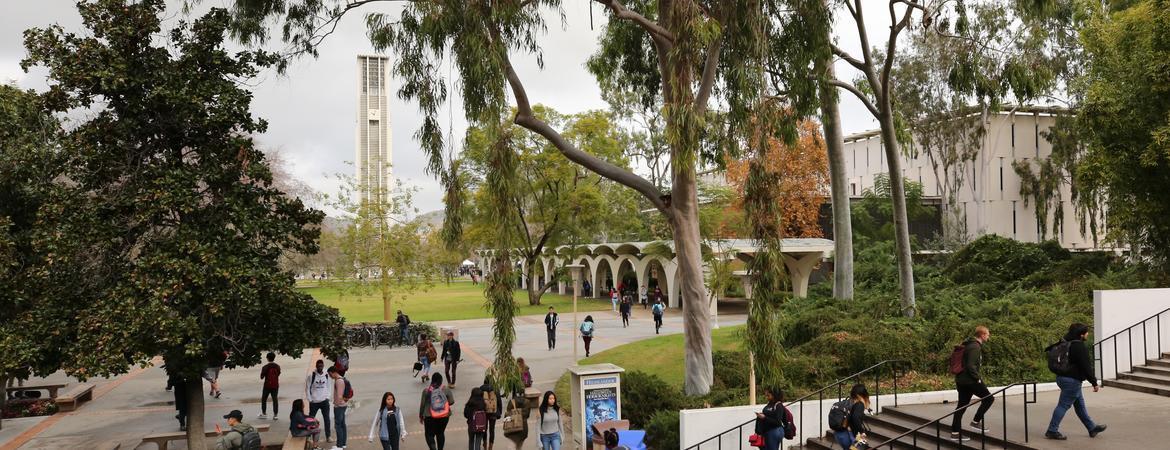
UC Riverside alumnus and friend Arthur D. (Art) Riggs, a pioneering researcher and expert in diabetes who helped launch the biotechnology industry, died March 23, 2022. He was 82.
A world-renowned geneticist at City of Hope in Duarte, Calif., for 53 years, Riggs’ discoveries have impacted the lives of diabetes, arthritis, and cancer patients around the world. Among his most important contributions was the development of technology that enabled the mass production of synthetic insulin, which today is used to treat diabetes in hundreds of millions of people.
Riggs was born on Aug. 8, 1939, in Modesto, Calif. Soon after, his family moved to San Bernardino, where his father built and managed a mobile home park. Riggs' interest in science began at an early age and blossomed at UCR, where he earned an undergraduate degree in chemistry in 1961. Riggs went on to earn a Ph.D. in biochemistry at the California Institute of Technology and joined City of Hope as a research scientist in 1969. In the late 1970s, Riggs and colleagues at City of Hope and UC San Francisco were the first to manufacture a human protein—insulin—in bacteria. This achievement was critical to the growth of the biotechnology industry, including the success of the biotech giant Genentech.
“Art Riggs was a remarkable person and a remarkable scientist. We are proud to have called him one of ours — a UCR alumnus who truly made an impact,” said Kathryn Uhrich, dean of UCR’s College of Natural and Agricultural Sciences. “Art contributed his time, energy, and passion towards the betterment of CNAS and UCR. Art and his wife, Jane, promoted basic science as well as land conservation. They were regular visitors to UCR’s Natural Reserve System Sweeney Granite Mountains Desert Research Center, which is surrounded by the Mojave National Preserve and generously supported NRS initiatives. Art was extremely proud of his experiences in chemistry, including at least one lab fire, and strove to recognize the impact that chemistry faculty had on his productive career. He generously shared his time and experiences with chemistry students about patenting and publishing science. Recognizing the impact that UCR had on his career, Art built deep collaborations between UCR and City of Hope. I will long remember his joy for science and how it can positively impact people and the planet we live on.”
As a scientist and leader at City of Hope, Riggs continued to make major contributions to the life sciences, documented in more than 200 scholarly papers and 20 patents. His work on cancer has resulted in treatments for breast, colon, and blood cancers.
“Arthur Riggs is one of the scientific giants of the age and should be a household name for his contributions to diabetes alone,” Robert Stone, president and CEO of City of Hope and Helen and Morgan Chu Chief Executive Officer Distinguished Chair, said in a tribute to Riggs. “His amazing scientific accomplishments go far beyond one condition, though, both in his own work and in that of the dozens of talented researchers for whom he was a devoted mentor. City of Hope today owes an enormous debt to him, as do countless people whose lives have been changed by his discoveries.”
In 2017, Riggs received the UCR Medallion, an honor presented to an individual in recognition of pioneering scientific achievement, dedication to research and graduate education, and for enduring collaboration with the university. Riggs likened the experience of receiving the medal from his alma mater to parental praise.
“Every child likes to be recognized by their parents and there’s a little bit of that when I go back to UC Riverside,” Riggs said in a video interview.
Riggs was also recognized with Distinguished Alumni Awards from both UC Riverside and Caltech, the Juvenile Diabetes Foundation Research Award, and the City of Hope Gallery of Achievement Award. In 2006, he was honored for his lifetime of achievements through election to the National Academy of Sciences.
